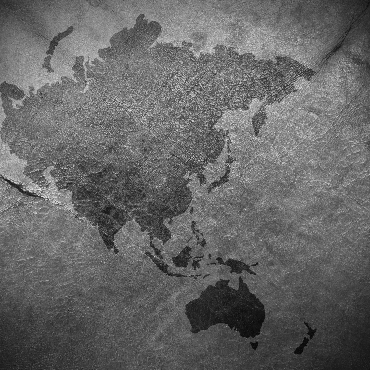SRI LANKA'S DEBT DRAMA
The urgency of Sri Lanka's debt crisis has intensified in the wake of the country's recent political turmoil. Months of unrest, protests, and public upheaval eventually culminated in the ouster of President Gotabaya Rajapaksa in July. Though then-Prime Minister Ranil Wickermesinghe subsequently assumed the presidency, Colombo's economic mess has lingered. Double-digit inflation has taken a massive toll on public access to energy and medical imports. More fundamentally, Colombo's balance sheet has careened into the red, and Sri Lanka has struggling to service its external debts. After it defaulted in May, the government was initially slow to request assistance from the International Monetary Fund, hoping to revive the economy through a rebound in tourism. But as that prospect has dimmed, China's influence has grown to overshadow the ongoing multilateral effort to restructure Colombo's debt. Beijing is averse to multilateral credit negotiations and prefers bilateral deals, in part because the terms of its Belt and Road Initiative (BRI) infrastructure loans are veiled in secrecy. Underscoring Beijing's political influence on these matters is the upcoming port call of a Chinese military ship at Hambantota, the port China financed through BRI loans. (Wall Street Journal, July 9, 2022; Reuters, August 2, 2022; Wall Street Journal, July 31, 2022)
NEPAL BALKS AT NATIONAL GUARD PARTNERSHIP WITH U.S.
Sandwiched between China and India in the Himalayan heights, Nepal routinely finds itself caught between the competing interests of great powers. In February of this year, Katmandu approved a massive economic compact with Washington to fund investments in power supply and transportation infrastructure – much to the consternation of Beijing. In the wake of the deal, the United States sought to conclude negotiations about Nepal's entry into its State Partnership Program (SPP), a disaster-relief partnership between the U.S. National Guard and its in-country counterparts. Nepal had asked to join the SPP on multiple occasions over the past seven years in the wake of floods, wildfires, and earthquakes. Even so, the government of Prime Minister Sher Bahadur Deuba ultimately spiked negotiations and refrained from joining. At issue was intense diplomatic pushback from PRC officials, who claimed that the SPP was tantamount to a military partnership with Washington, and an endorsement of the "Free and Open Indo-Pacific" strategy. Some reports also suggested that India harbored parochial concerns about the prospect of Nepal bolstering military-to-military relations with America. The SPP issue has spilled over into the broader bilateral relationship between Nepal and the U.S., and delayed Deuba's previously planned trip to Washington. (The Diplomat, June 22, 2022)
MODI REMAINS SILENT AS ETHNO-RELIGIOUS VIOLENCE IN INDIA CONTINUES
India plays a crucial role in America's Indo-Pacific foreign policy. The world's largest democracy occupies a strategic position on China's southwestern border and rests above the Indian Ocean, a critical thoroughfare for global commerce. On the matters of Beijing's geopolitical ambitions and democracy coordination, Washington and New Delhi are comfortably aligned. Internal Indian politics, however, complicate the situation significantly. Longstanding ethno-religious tensions between majority Hindus and minority Muslims have grown increasingly violent, especially as the ruling Bharatiya Janata Party (BJP) has embraced Hindu nationalist rhetoric. Most recently, police in Uttar Pradesh ordered the demolition of Muslim homes, and two people died in an ensuing riot. Elsewhere in the state, authorities tore down a Muslim activist's house with a bulldozer, which gave way to more protests in Kanpur and Saharanpur, as well as cities in other Indian states. Thus far, however, Prime Minister Narendra Modi has refrained from commenting on these developments. (Guardian, June 13, 2022)
DRAMA AMONG PACIFIC ISLAND NATIONS LEADS BACK TO BEIJING
Politics among the Pacific Island nations have been especially tense of late, particularly within the Pacific Islands Forum (PIF). Established in 1971, the PIF is an economic and diplomatic forum designed to standardize regional trade and pool diplomatic initiatives. Moreover, it has long institutionalized Australia and New Zealand's influence throughout the region. Recent developments, however, suggest the emergence of fissures within the PIF that could benefit Beijing. Micronesian countries recently threatened to leave the forum after their candidate for General-Secretary was passed over. Although most countries resolved the issue, Kiribati signaled its intent to withdraw from the PIF in mid-July. According to the political opposition in Tarawa, the PRC urged Kiribati to leave the forum, downplaying the importance of regional ties and emphasizing the importance of bilateral relations. The PRC has cultivated its relationship with Kiribati since 2019, when Tarawa broke off relations with Taipei in favor of Beijing, and has rewarded Kiribati with infrastructure projects, including renewing an airstrip with possible military implications. (ABC, July 11, 2022; Guardian, July 12, 2022)
CAMBODIA CONTINUES CHINA TILT, BREAKS GROUND ON NAVAL BASE
The increasingly close political ties between the PRC and Cambodia have garnered attention and concern from Washington, particularly as the political alignment between Beijing and Phnom Penh spills over into military cooperation. In June, officials from both countries broke ground on a port modernization project at Ream Naval Base which would expand the facility's ship capacity fivefold. At the ceremony, China's ambassador to Cambodia described the two countries as "ironclad brothers." The Cambodian defense minister subsequently assured his neighbors – and America – that the upgraded port would be unable to accommodate heavy warships. Nevertheless, Cambodian strongman Hun Sen and his government long concealed the project, and the port – funded as part of Beijing's Belt and Road Initiative – mirrors similar gambits from the PRC in Djibouti and the Solomon Islands. (Associated Press, June 8, 2022)
Want these sent to your inbox?
Subscribe
Indo-Pacific Monitor No. 26
Related Categories:
Democracy and Governance; International Economics and Trade; China; India; Southeast Asia
